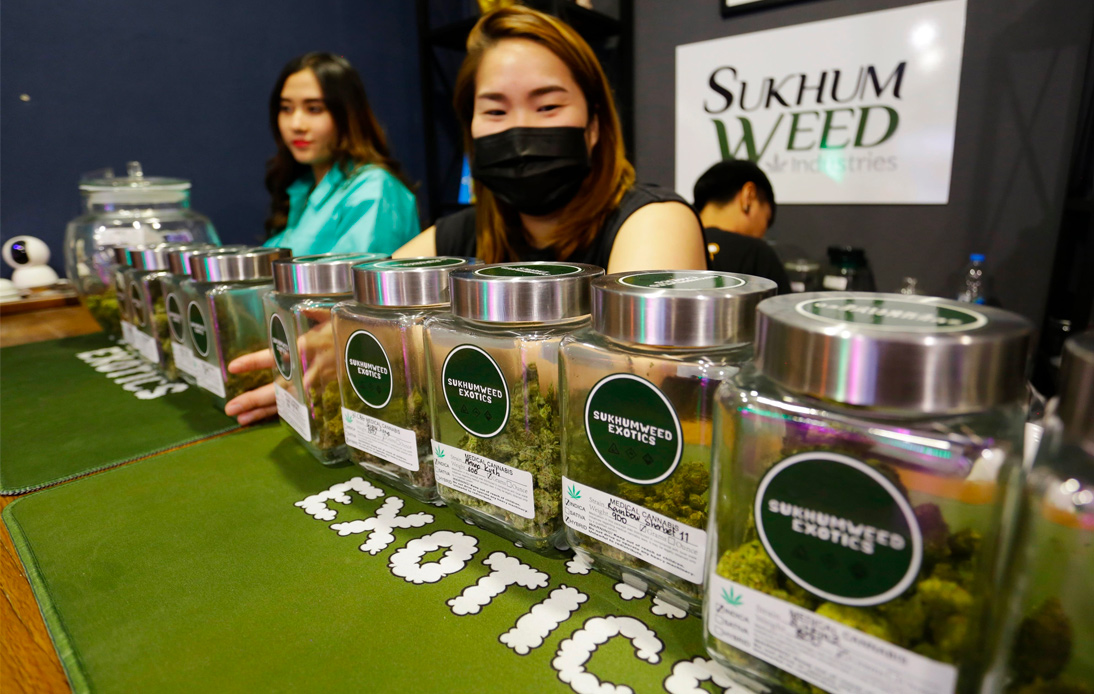
Tourism professionals have praised the vow of the prime minister to eliminate the use of recreational cannabis within half a year. They contend that unregulated cannabis stores have inflicted more damage than benefits to the tourism sector in the previous year.
This week, Prime Minister Srettha Thavisin asserted in a conversation with Bloomberg that the administration is poised to amend the cannabis policy in the coming six months, intending to restrict its use exclusively for medical purpose.
In previous statements, he articulated his personal opposition to the recreational consumption of the herb.
“You can now easily find a cannabis shop every 200-300 metres along the streets of Pattaya, and 90% of them are not for medical purposes”, said Thanet Supornsahasrungsi, the executive director of Sunshine Hotels and Resorts in Pattaya.
He remarked that the liberal policies and weak enforcement have engendered more dilemmas in tourism than economic advantages.
Several instances have occurred where hotel guests consumed excessive amounts of cannabis, necessitating hospitalization due to comatose states.
Complications also arose for visitors hailing from nations where the consumption and importation of cannabis products are illegal, with many being unaware that some procured products here, like food and beverages, contain cannabis.
“If we would like to use it for medical purposes, law enforcement should be stricter to make sure we can offer them medical treatment which is safe for their health,” stated Mr Thanet.
He pointed out that the majority of tourists do not travel to Thailand solely to consume cannabis, but they leverage the legal loophole, amidst the nation’s failure to adequately govern the sector.
The initial objective of decriminalization, advocated by the Bhumjaithai Party during their time in the former coalition government, was to endorse cannabis for its medicinal properties and as a valuable crop with diverse uses, spanning medicine, food, and beverage creation.
However, the absence of specific legislation resulted in the burgeoning of recreational consumption, witnessing the emergence of thousands of cannabis dispensaries in Bangkok and other tourist hubs nationwide.
The legislation aimed at effective regulation didn’t materialize during the term of the former government.
Leader of Bhumjaithai, Anutin Charnvirakul, previously served as the minister of public health and currently presides over the Ministry of Interior.
It’s speculated that backing the medicinal utilization of cannabis was a pivotal factor for his 71-member party when deciding to align with the coalition led by Pheu Thai.
Suksit Suvunditkul, the head of the southern chapter of the Thai Hotels Association, noted the proliferation of cannabis stores in Phuket following its exclusion from the list of narcotics.
He emphasized that numerous hotels had to impose prohibitions on cannabis smoking within their premises due to the disturbances caused to other occupants, particularly families with children.
He stated that the hotel sector is in complete agreement with the government’s initiative to confine cannabis use to medical needs only.
Previously, the private sector in the provinces contemplated the repercussions of unregulated operations and proposed the concept of designating zones for recreational cannabis use to hinder uncontrolled expansion.
However, should the government decide to shut down all cannabis outlets, the tourism industry in Phuket anticipates no repercussions, as recovery projections are aligned with the 2019 benchmarks, even without cannabis deregulation.




















